Our Guides
How can I apply to study abroad?
Applying to an international university
Choose a Country, University & Program:
Research and select the country, university, and course that best match your academic background and career goals.
Prepare Required Documents:
Typically, you will need a valid passport, academic transcripts and certificates, passport-size photographs, a CV (if required), statement of purpose, and proof of English proficiency (IELTS/TOEFL or the university’s internal test).
Application Submission:
Submit your application online through the university’s official portal or apply via an authorized education consultant.
Offer Letter & Acceptance:
After document evaluation, you will receive an offer letter. Once accepted, you may need to pay an initial tuition deposit or confirmation fee.
Student Visa Process:
After acceptance, apply for a student visa through the respective country’s embassy or immigration system. Visa requirements vary by country.
Travel & Enrollment:
Once your visa is approved, arrange travel. Upon arrival, complete university enrollment and begin your studies abroad.
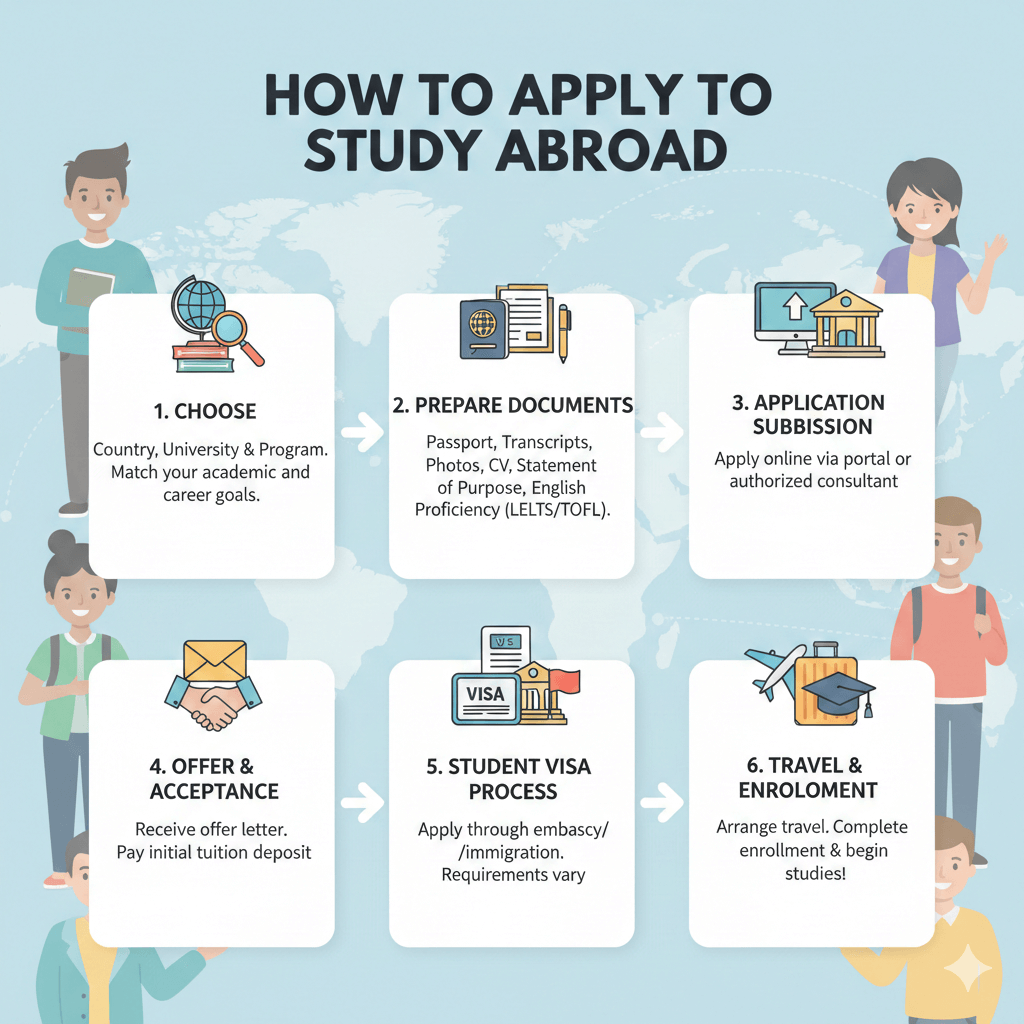
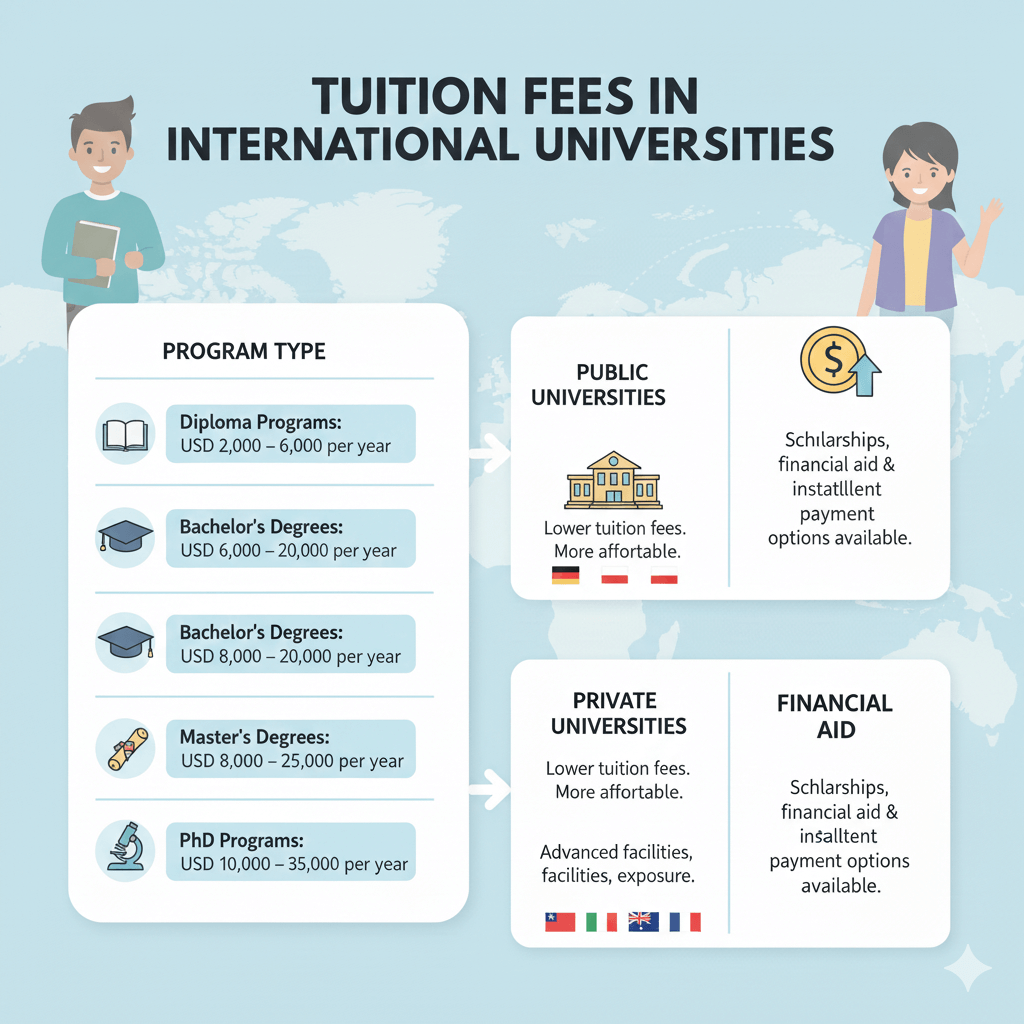
What is the fee structure of universities abroad?
Tuition fees in international universities
Diploma Programs: USD 2,000 – 6,000 per year
Bachelor’s Degrees: USD 6,000 – 20,000 per year
Master’s Degrees: USD 8,000 – 25,000 per year
PhD Programs: USD 10,000 – 35,000 per year
Public Universities:
Public universities in many countries (such as Germany, Italy, or some Eastern European nations) generally have lower tuition fees and are more affordable for international students.
Private Universities:
Private institutions (in countries like the UK, Australia, USA, and Canada) charge higher tuition fees but offer advanced facilities, global exposure, and strong international recognition.
Many universities abroad also offer scholarships, financial aid, and installment payment options to support international students.
How much does it cost to live abroad?
Cost of living abroad for students
Accommodation: USD 300 – 800/month
(shared apartments, student residences, or hostels)
Food & Groceries: USD 200 – 400/month
(local food is affordable; dining out or Western food costs more)
Transportation: USD 50 – 150/month
(public transport, student travel cards, occasional taxis)
Other Expenses: USD 100 – 200/month
(internet, mobile, study materials, leisure)
On average, international students spend around USD 700 – 1,500 per month, depending on the country, city, and lifestyle. Studying abroad offers global exposure, better career opportunities, and a high standard of living, though costs vary by destination.
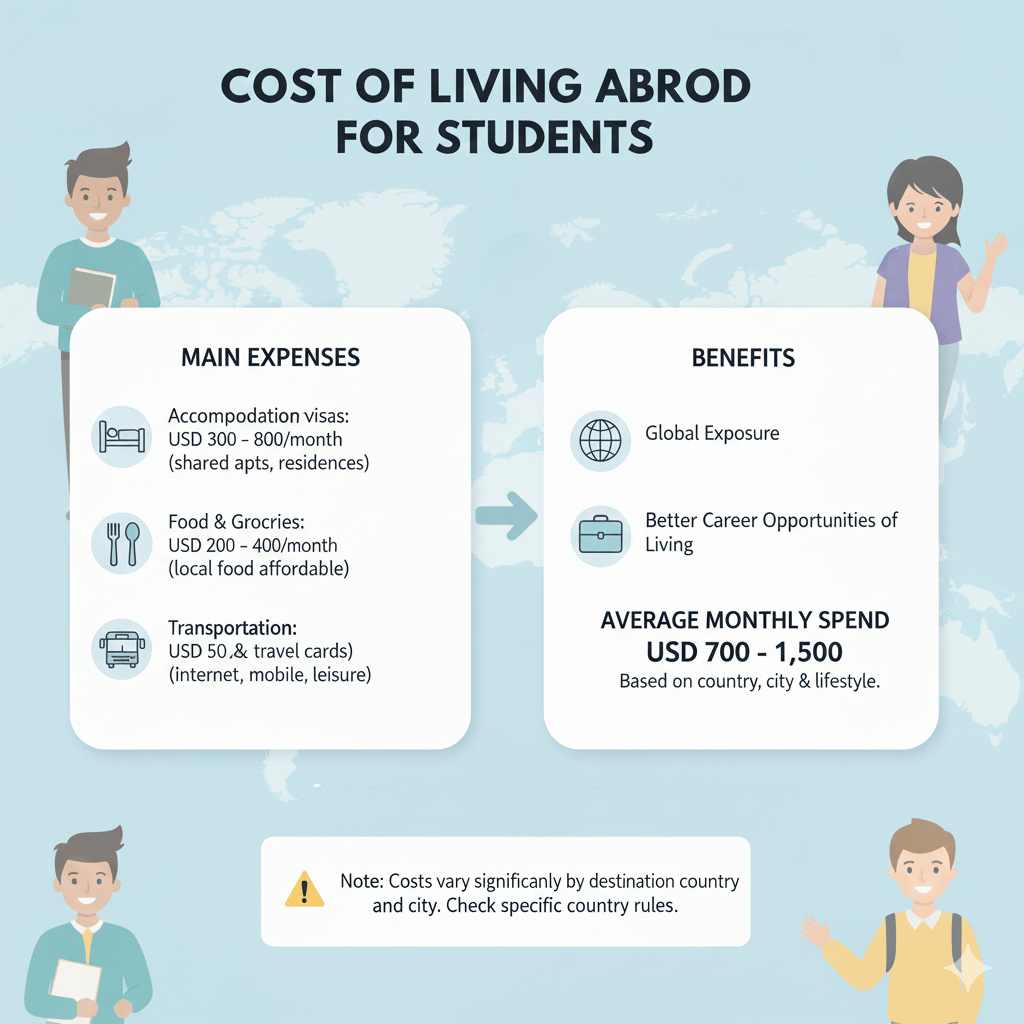
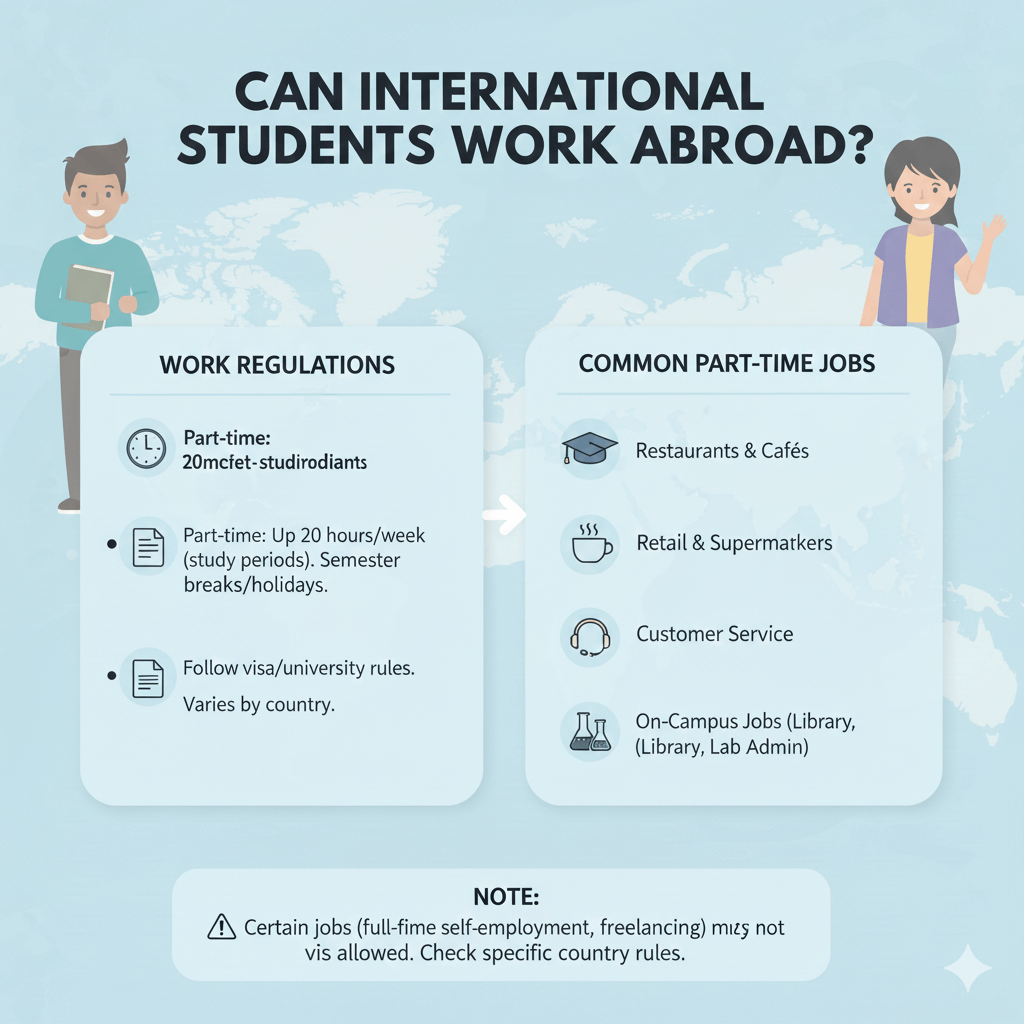
Can international students work part-time abroad?
Can international students work while studying abroad?
In most countries, international students are allowed to work part-time up to 20 hours per week during study periods and full-time during semester breaks or official holidays. Work regulations vary by country.
Part-time work is usually permitted during study weeks, but students must follow visa conditions and university guidelines.
Common part-time jobs for international students include:
Restaurants and cafés
Retail stores and supermarkets
Customer service roles
On-campus jobs such as library, lab, or administrative assistance
Note: Certain jobs, such as full-time self-employment, freelancing, or work outside visa limits, may not be allowed under student visa regulations. Always check the specific work rules of your study destination.
Will I face a language barrier while studying abroad?
In most popular study destinations, language is not a major barrier for international students, especially if you choose an English-taught program.
English-Taught Programs:
Countries like the UK, USA, Canada, Australia, and many European nations offer programs fully taught in English.
Daily Communication:
In major cities and university campuses, English is commonly spoken in shops, transport, hospitals, and student services.
Local Language:
While locals may speak their native language, universities often provide language support classes to help students adjust.
Campus Support:
Universities have international offices, student mentors, and orientation programs to help students settle in comfortably.
Overall, students rarely face serious language issues abroad, especially in international-friendly cities. Studying abroad also helps improve communication skills and cultural confidence over time.
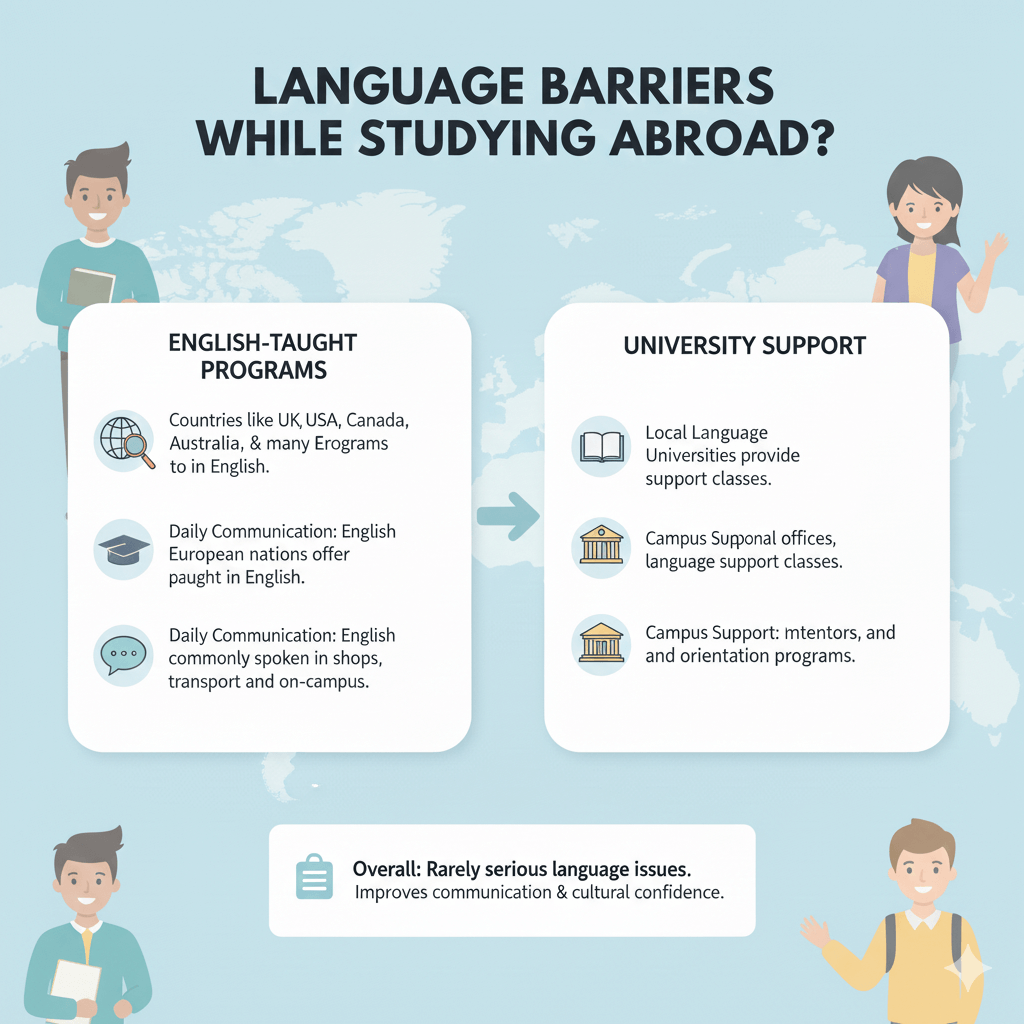
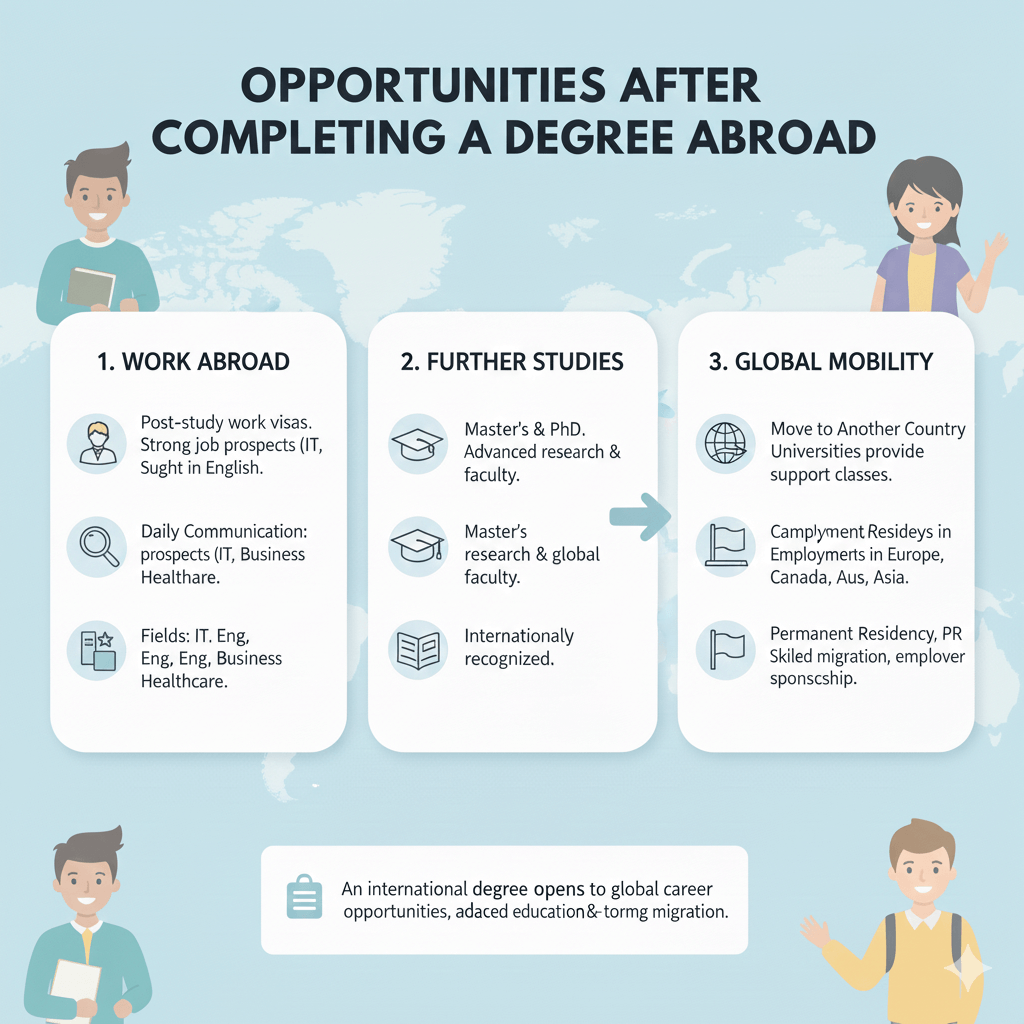
What are my future options after completing my degree?
Opportunities after completing a degree abroad
Work Abroad:
Graduates may apply for post-study work visas or work permits, depending on the country. Fields such as IT, Engineering, Business, Healthcare, and Data & Technology offer strong job prospects in many countries.
Further Studies:
Many students choose to continue with Master’s or PhD programs abroad, benefiting from advanced research facilities, global faculty, and internationally recognized qualifications.
Move to Another Country:
A degree earned abroad is globally recognized, allowing graduates to pursue employment or higher studies in other countries such as Europe, the Middle East, Canada, Australia, or Asia.
Permanent Residency (PR):
Several countries offer clear pathways to permanent residency through post-study work experience, skilled migration programs, or employer sponsorship, making long-term settlement possible.
In short, an international degree opens doors to global career opportunities, advanced education, and long-term migration options worldwide.

